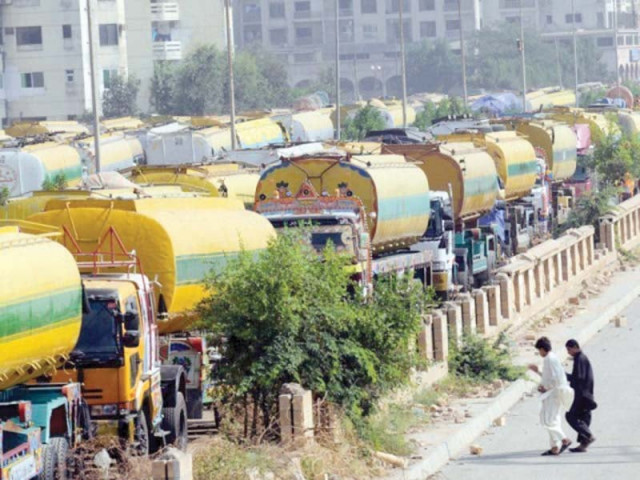Mafia works where the state fails
How plunderers are cashing in on distorted markets in absence of rational pricing

Owners of water tankers collude with the city government to sell the ‘stolen’ water from the water mains at a premium in several towns in the metropolis. PHOTO: FILE
Mafia has been mostly associated with anti-state activities, gang wars and criminality. In certain cases, mafia, while organised informally, might have been in the business of providing legitimate goods and services.
Although its precise origins are unknown, the term ‘Mafia’ came from a Sicilian-Arabic slang expression Mafioso that means ‘acting as a protector against the arrogance of the powerful’. Until the 19th century, the word “mafioso” did not refer to someone who was a criminal, but rather a person who was suspicious of central authority; perhaps a modern day libertarian, though not an outright anarchist.
Timber Mafia
The Timber Mafia in Pakistan is a case in point. The following brief account is based on an IUCN study published in 1998.
Read: Hand in hand: Police blamed for colluding with timber smugglers
In 1976, in order to control over-harvesting of forests by the forest contractors, Khyber-Pakhtunkhwa (then NWFP) government established the Forest Development Corporation (FDC).
The FDC limited the role of contactors to cutting and marketing of trees, while retaining the ownership of timber in state’s hands. However, the FDC was soon exploited by ingenious timber traders.
They devised a complex system of advance purchase of royalty rights from locals, under-cutting of bids, identity concealment and later on enjoying windfall gains when timber was sold at market rates. They spotted the huge arbitrage between the official price of timber and its market price.
The contractors obtained the logging schedule, contacted royalty owners whose compartment was mature for logging, paid them an upfront cash price higher than the government price, but significantly below market price, and in exchange, obtained royalties through attorneys.
Once they owned royalties, these contractors then participated in the bidding for cutting and transportation of trees and were able to under-cut all bids. Once they got the contract, they could then harvest the identified compartment, and mostly over-harvested the forest. Finally, these contractors brought the timber in the market, where Forest Department Corporation sold them at market price.
As 60-80% of sale proceeds belonged to concessionaires, the contractors received the cash through their attorneys from the concessionaires. Thus, this cash did not reach the right holders, who had already sold their rights to contractors. It is these timber traders, who are infamously and inaccurately called ‘timber mafia’.
On the other hand, the state also protects these traders by imposing a high tariff on import of timber. Pakistani timber sells at least twice as much the internationally available timber.
The systematic arbitrage in the system due to artificial price suppression, and frustration of locals with the state system of royalty payment, led to emergence of an informal spontaneous order, which we today call timber mafia.
Water Mafia
Second case in point is Water Mafia in Karachi. According to a study published by the Orangi Pilot Project in 2008, the owners of water tankers collude with the city government to sell the ‘stolen’ water from the water mains at a premium in several towns in the metropolis.
Read: Crisis worsens: Tankers run out of water
In contrast, the city government provided water to the residents at a very low flat price. The study estimated the annual business volume of Water Mafia is a colossal Rs50 billion. Indeed there is a Water Tankers Association with 5,000 members! In 2008, the annual budget of the Water Board, on the other hand, was around Rs5 billion, half of which is paid through subsidies from the provincial government. Thus, the state remains totally incapacitated due to absence of rational pricing of water.
A cursory look at the origin and operations of the Timber Mafia in the North-West, and the Water-Mafia in South-East of Pakistan, brings out several important lessons for policy.
The key lesson is: when markets are distorted – prices are absent and freedom to enter and exit does not exist – it is captured by stronger groups. When the state fails to deliver, the shortage of goods is ensured through a spontaneous and informal social order. The writer is the founder and executive director of PRIME Institute, an independent think tank based in Islamabad
Published in The Express Tribune, September 7th, 2015.
Like Business on Facebook, follow @TribuneBiz on Twitter to stay informed and join in the conversation.


















COMMENTS
Comments are moderated and generally will be posted if they are on-topic and not abusive.
For more information, please see our Comments FAQ